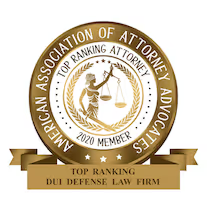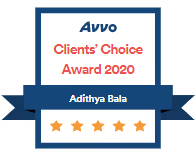
It is well known that running a red light or a stop sign can lead to severe repercussions for drivers, pedestrians, cyclists, and others in the vicinity. However, driving through an intersection during a light change is not always as simple as intentionally running a red light or stop sign. Sometimes lights change faster than others, or stop signs might be difficult to notice. If you run a red light or a stop sign, you may wonder what the penalties are in Arizona. Speaking to an experienced attorney can be a valuable resource in helping you better understand a traffic violation and its consequences.
If you've received a ticket for running a red light or stop sign in Arizona, it's important to contact an attorney. When hiring Bala Legal Services, you'll be partnered with a seasoned lawyer who is experienced, open-minded, and affordable. We provide free initial consultations to assist you in helping to determine your next steps.
Running a red light or stop sign typically incurs a penalty of around $250, resulting in 2 points being added to your driving license. If a red light camera catches you, expect a fine of about $165 and another 2 points on your license. It's important to note that these penalties and fines can vary over time and may differ across counties in Arizona. Therefore, seeking guidance from an attorney specializing in traffic and vehicle offenses is highly recommended to get the most accurate and up-to-date information.
Under Arizona regulations, drivers are required to come to a complete stop before entering an intersection when faced with a solid red light. In contrast, for stop signs and blinking red lights, drivers must cease movement before they reach the closest crosswalk, a separate stop line, or the intersection itself, as stipulated by the law.
Under Arizona regulations, drivers can execute a right turn following a halt at a red light, except when signage indicates otherwise. However, drivers must exercise caution and adhere to right-of-way rules when turning right at a red light.
Arizona legislation permits drivers to execute a left turn after a complete stop at a red light, but this is strictly confined to situations involving one-way streets turning onto other one-way streets. Naturally, drivers must adhere to standard right-of-way regulations and exercise prudence while maneuvering.
A steady yellow light in Arizona alerts that the signal is on the brink of changing to red. This means it's permissible for drivers to enter an intersection while the light remains yellow, but not once it has transitioned to red.
Certain areas within Arizona deploy automatic cameras at intersections as a tool to identify those who violate red-light regulations. Nonetheless, any jurisdiction employing these red light cameras must inform drivers of their presence. This is done by positioning a sign within a 300-foot radius and another located further than 300 feet from the camera.
There are multiple ways to defend against charges of red lights or stop sign violations. One of the more common strategies is asserting that the law enforcement officer didn't accurately see the car come to a full stop due to their distance or angle from the intersection. Photos can be helpful to support this argument by demonstrating the officer's limited vantage point.
Another widely used defense is to claim that the driver couldn't see the red light or stop sign because it was obscured, possibly hidden behind trees, or blurred by adverse weather conditions. The driver could also have spotted the light, but it was too late to bring the vehicle to a safe stop. In other instances, an indistinctly marked crosswalk due to faded paint can confuse and thus result in a violation. Again, photographic evidence can provide crucial support for these arguments.
Another possible defense involves situations where traffic lights or stop lines have been recently installed or changed. Drivers who regularly traverse a particular intersection might not be aware of the new changes and could unintentionally fail to comply. There have also been cases where drivers were cited for violations because they stopped ahead of the stop line instead of behind it, as legally required.
In all these scenarios, it's important to remember that the final decision rests with the judge. They will examine the evidence, consider the specifics of each situation, and then decide whether the driver is guilty of the violation or can be cleared of the charges.
Running a stop sign or a red light ranks among Arizona's most frequent traffic infractions. Law enforcement officers often note a surge in these violations as they approach their monthly ticket quota goals. At Bala Legal Services, our team is dedicated to helping and representing you. You will have an experienced attorney who is approachable, accommodating, and affordable.
Our firm serves the areas of Tempe, Mesa, Scottsdale, Phoenix, and Chandler. If you are in need of an experienced criminal defense attorney in Arizona, please contact us today to schedule your free case evaluation.





